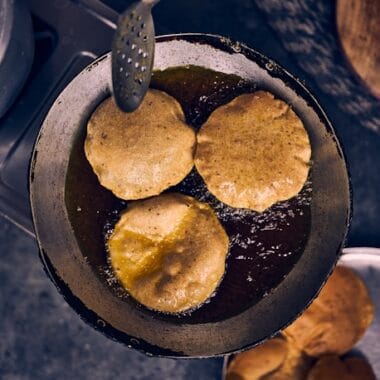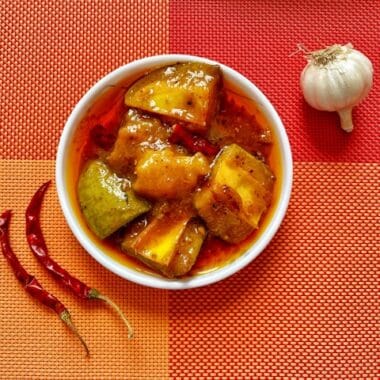What is hot pressed oil?
Oil extracted from seeds, nuts, or fruits through a mechanical process that involves application of heat is called as Hot pressed oil, also known as refined or expeller-pressed oil. Unlike cold pressed oils, which are produced at room temperature (below 35°C (95°F)), hot pressed oils undergo extraction at higher temperatures, typically between 90°C to 120°C (194°F to 248°F). This process aims to maximize oil yield, but it also has significant impacts on the oil’s flavor, aroma, nutritional content, and shelf life.
The Hot Pressing Process
- Preparation of Raw Materials: Seeds or nuts are cleaned, dehulled (if necessary), and sometimes pre-conditioned by roasting or heating to facilitate oil extraction.
- Mechanical Pressing: The prepared seeds or nuts are fed into an expeller press, where they are crushed and pressed under high pressure. The friction generated during pressing produces heat, which helps to break down cell walls and release more oil.
- Filtration and Refining: The extracted oil is filtered to remove solid particles and may undergo additional refining processes, such as degumming, neutralization, bleaching, and deodorization, to improve clarity, colour, and shelf life.
Characteristics of Hot Pressed Oils
- Colour: Hot pressed oils are often darker in colour compared to cold pressed oils due to the heating process, which can caramelize some of the natural pigments and compounds in the seeds or nuts.
- Taste and Aroma: The application of heat alters the natural flavours and aromas of the raw materials, often resulting in a more neutral or slightly roasted taste. This makes hot pressed oils suitable for a variety of cooking applications without overpowering other flavours in the dish.
- Nutritional Content: The high temperatures used in hot pressing can degrade some heat-sensitive nutrients, such as certain vitamins (e.g., vitamin E) and antioxidants. However, hot pressed oils still retain a significant portion of their nutritional value, including essential fatty acids.
- Oil Yield: Hot pressing generally produces a higher yield of oil compared to cold pressing, making it a more efficient method for large-scale production.
Benefits of Hot Pressed Oils
- Higher Yield: The heat-assisted extraction process increases the amount of oil obtained from the raw materials, making hot pressed oils more cost-effective and suitable for mass production.
- Longer Shelf Life: The refining steps involved in hot pressing remove impurities and unstable compounds, resulting in oils with longer shelf life and better stability during storage.
- Versatility in Cooking: The neutral flavour and higher smoke point of hot pressed oils make them versatile for various cooking methods, including frying, sautéing, and baking.
- Availability and Cost: Hot pressed oils are more widely available and generally less expensive than cold pressed oils, making them accessible to a broader range of consumers.
Disadvantages of Hot Pressed Oils
- Nutrient Loss: The high temperatures used in hot pressing can destroy some beneficial nutrients and antioxidants, reducing the overall nutritional value of the oil.
- Altered Flavour: While the neutral flavour can be advantageous for certain culinary applications, it can also result in a loss of the distinctive taste and aroma characteristic of the raw materials.
- Potential for Harmful Compounds: Excessive heating during the extraction process can lead to the formation of harmful compounds, such as trans fats and free radicals, which may have negative health effects.
Conclusion
Hot pressed oils, with their efficient extraction process and versatile culinary applications, play a significant role in the food industry. While they may lack some of the nutritional benefits and authentic flavours of cold pressed oils, they offer advantages in terms of yield, shelf life, and cost.
What is Cold Pressed Oil?
Oil extracted from seeds, nuts, or fruits using any of the traditional methods that does not involve heat or any chemical solvents is called cold pressed oil. This traditional method preserves the oil’s natural flavour, aroma, and nutritional value, making it a healthier and more flavourful option compared to refined oils. The process is done at temperatures below 35°C (95°F), ensuring that the beneficial properties of the oil are maintained.
The Cold Pressing Process
- Preparation of Raw Materials: The seeds, nuts, or fruits are cleaned and sometimes lightly roasted to facilitate the extraction process. For some oils, no roasting is required to preserve the delicate flavour and nutritional content.
- Mechanical Pressing: The prepared raw materials are placed into a press where they are crushed and ground to extract the oil. The mechanical pressing is done slowly to minimize heat generation and oxidation.
- Filtration: The extracted oil is filtered to remove any solid particles or impurities. This step ensures that the final product is clear and free of any residues.
Characteristics of Cold Pressed Oils
- Colour: Cold pressed oils retain their natural colour, which can vary depending on the source. For example, cold pressed olive oil is usually greenish-gold, while cold pressed sesame oil has a rich amber hue.
- Taste and Aroma: These oils have a rich, robust flavour and aroma that are true to their source. Cold pressed coconut oil, for instance, retains the tropical scent and taste of fresh coconuts.
- Nutritional Content: Cold pressing preserves the natural antioxidants, vitamins (such as vitamin E), essential fatty acids (like omega-3 and omega-6), and other beneficial compounds found in the raw materials.
- Purity and Safety: Cold pressed oils are free from chemical solvents and additives, making them a purer and safer choice for consumption.
Benefits of Cold Pressed Oils
- Nutritional Integrity: The low-temperature process ensures that the oil retains its nutritional properties, including essential fatty acids, vitamins, and antioxidants that are beneficial for health.
- Authentic Flavour and Aroma: Cold pressed oils have a natural, rich flavour and aroma, enhancing the taste of dishes without the need for artificial flavours or enhancers.
- Purity and Naturalness: These oils are free from chemical additives, solvents, and preservatives, ensuring a pure and natural product.
- Health Benefits: Regular consumption of cold pressed oils can contribute to improved heart health, better skin and hair, and overall well-being due to their high nutrient content.
- Environmental Sustainability: Cold pressing is a more eco-friendly method of oil extraction as it typically requires less energy and avoids the use of harmful chemicals.
Disadvantages of Cold Pressed Oils
- Shorter Shelf Life: Due to the lack of preservatives and the presence of natural compounds, cold pressed oils may have a shorter shelf life compared to refined oils. Proper storage in cool, dark conditions can help extend their usability.
- Lower Smoke Point: Cold pressed oils often have lower smoke points, making them less suitable for high-temperature cooking methods such as deep frying.
- Cost Considerations: The extraction process for cold pressed oils is more labour-intensive and yields less oil compared to industrial methods, making them more expensive.
- Limited Availability: Cold pressed oils may not be as widely available as refined oils, especially in regions where industrial processing is the norm.
Conclusion
Cold pressed oils offer a wealth of benefits, from their superior nutritional content to their rich, natural flavours and aromas. They stand out as a healthier, purer alternative to refined oils, making them an excellent choice for health-conscious consumers and culinary enthusiasts alike. At Oylar, we take pride in providing high-quality cold pressed oils that embody the essence of nature’s bounty, delivering both health benefits and culinary delight to our customers.











